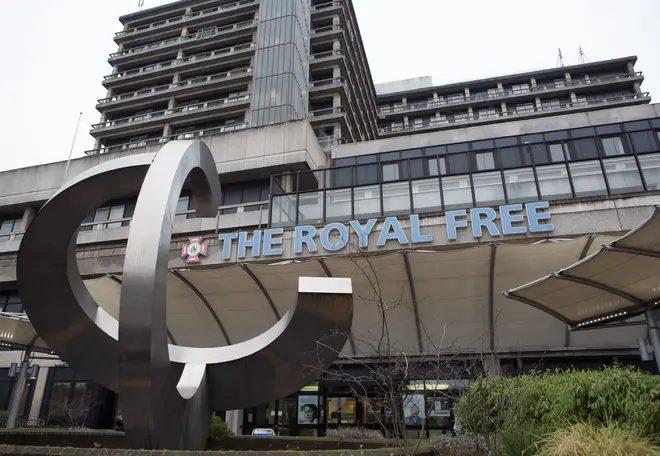
Iain Dale 7pm - 10pm
17 February 2021, 09:31 | Updated: 17 February 2021, 13:40

The world's first Covid-19 human challenge study has been given the go-ahead to begin next month, with young people intentionally infected with the virus to learn more about how it works.
Up to 90 people aged 18-30 will be exposed to Covid-19 in a "safe and controlled environment", with the research set to play a key role in developing effective new vaccines and treatments.
Volunteers will be compensated for the time they spend in the study, with researchers encouraging those aged 18-30 to come forward.
Backed by £33.6 million from the government, the trial has now passed the key Ethics Committee stage, meaning it can begin imminently.
However, the study will not begin without the go-ahead from the local NHS, to ensure the study will not impact on the NHS’ ability to care for patients during the pandemic.
Read more: No single 'cast iron formula' for lifting lockdown Dominic Raab tells LBC
Read more: Every UK adult could be offered both Covid vaccine doses by August, claims taskforce boss

Vaccines Minister explains the next stage of the jab programme
In a first-of-its-kind for this virus, the human challenge study will look to establish the smallest amount of virus needed to cause infection.
Researchers say this will give doctors a greater understanding of Covid-19 and help support the pandemic response by aiding vaccine and treatment development.
After this initial study has taken place, potential vaccines could be given to small numbers of volunteers to help identify the most effective vaccines and accelerate their development.
The trial will be undertaken at the Royal Free Hospital in London, using "specialist and secure clinical research facilities...specifically designed to contain the virus".
Read more: Covid cases 'need to under 50,000' before lockdown is eased, health official warns

Foreign Secretary: More money needed to provide vaccines for poorest
Clinical company hVIVO, which specialises in human challenge trials, have been leading the work alongside the NHS, Imperial College London and the government's Vaccines Taskforce.
Responding to the news, Interim Chair of the Vaccines Taskforce Clive Dix said: "We have secured a number of safe and effective vaccines for the UK, but it is essential that we continue to develop new vaccines and treatments for Covid-19.
"We expect these studies to offer unique insights into how the virus works and help us understand which promising vaccines offer the best chance of preventing the infection."
Read more: Other countries need to ‘step up’ and provide vaccines to world's poorest, Rabb tells LBC

Nadhim Zahawi: We're not planning to have vaccine passports
Chief Scientific Officer at hVIVO, Dr Andrew Catchpole said the "approval from the Ethics Committee represents a very important milestone in the development of the Covid-19 challenge model".
"This study is a key enabling study to establish the Covid-19 challenge model and determine the lowest possible dose of virus required," he added.
"Data from this study will immediately facilitate the challenge model to be used for vaccine efficacy testing as well as to answer a wide range of fundamental scientific questions that are not feasible with traditional field trials, such as exactly what type of immunological response is required to confer protection from re-infection."
Read more: Labour demands pay rise for social care workers to £10 an hour

Boris Johnson hails 15 million jabs as ‘significant milestone’
Although this is a world's first for the Covid-19 virus, human challenge studies have played an important role in accelerating the development of treatments for diseases including malaria, typhoid, cholera, norovirus and flu.
The trials have also helped researchers establish which possible vaccine is most likely to succeed in phase 3 clinical trials that would follow, usually involving thousands of volunteers.